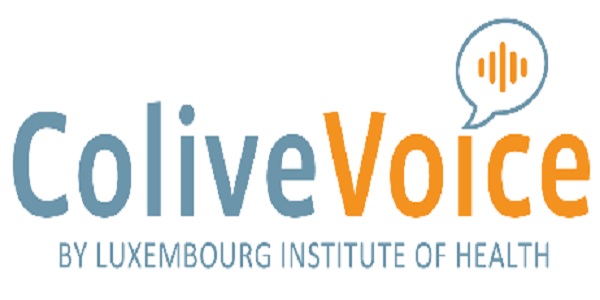
The Luxembourg Institute of Health (LIH) has announced the launch of CoLive Voice, a first-of-its kind digital health study that aims to advance the diagnosis, risk prediction and remote monitoring of various chronic conditions and symptoms by evaluating voice features.
Leveraging breakthrough artificial intelligence (AI) approaches, the study, which is set to run for up to ten years, will collect and analyse voice recordings in several languages from both the general population and people living with chronic or infectious diseases, to identify so-called "vocal biomarkers".
Human voice is a powerful communication medium that conveys feelings and emotions, but that can also immediately reflect the changes in an individual’s health. This notion, coupled with the widespread adoption of digital tools and artificial intelligence in healthcare, makes a case for the use of voice-based technologies for diagnostic and medical purposes. Vocal biomarkers could soon be used in various contexts such as telemedicine purposes, telemonitoring of patients between clinical visits or to assess the effectiveness of a drug in a clinical trial. To this end, audio, clinical, epidemiological data and patient-reported outcomes need to be collected simultaneously and systematically via well-structured methodologies.
“A vocal biomarker is a feature or a combination of features from the voice that can be associated with a specific clinical outcome and that can therefore be a valuable tool to monitor patients, diagnose a condition, assess the severity of a disease and even to develop new drugs”, explained Dr Guy Fagherazzi, Director of the LIH Department of Population Health (DoPH) and Principal Investigator of CoLive Voice.
In this context, the Deep Digital Phenotyping (DDP) research unit of the LIH DoPH launched the CoLive Voice study, with the aim of collecting and analysing tens of thousands of voice recordings from volunteers to identify vocal biomarkers for a variety of chronic conditions and symptoms, from stress, anxiety and depression to cancer, diabetes, multiple sclerosis, inflammatory bowel disease (IBD) and even COVID-19.
Specifically, through an anonymous online survey on the dedicated CoLive Voice web-application, study participants will first answer a detailed questionnaire on their health status, addressing clinical and epidemiological aspects such as lifestyle factors, self-reported symptoms, ongoing treatments and diagnosed diseases. They will then be asked to complete five different voice recordings by reading short predefined texts, coughing, breathing deeply and counting, among others.
LIH scientists will subsequently process the collected data and extract the most significant audio features, depending on the voice disorder, disease or type of voice recording.
“For instance, acoustic features extracted from recordings of a sustained vowel such as ‘aaaa’ can help us detect Parkinson’s disease, whereas linguistic features extracted from spontaneous or semi-spontaneous speech could be more suitable for mental health disorders”, clarified Aurélie Fischer, CoLive Voice project coordinator.
Such audio characteristics can then be used to “train” machine- and deep-learning models to automatically predict or classify any clinical, medical or epidemiological outcome of interest, from vocal features alone or in combination with other health-related data.
Adults and adolescents above the age of 15, from any country and regardless of their health status, are eligible to participate in CoLive Voice. In addition to people with no particular health issues, researchers are interested in including patients living with cancer, diabetes, multiple sclerosis, IBD or COVID-19.
Dr Fagherazzi concluded: “Though a Luxembourgish initiative, the strength of the study lies in its international dimension. Indeed, we expect the participation of over 50,000 individuals worldwide, contributing to making CoLive Voice a unique international multilingual audio databank to identify vocal biomarkers”.
Participation in CoLive Voice is entirely voluntary, one-off and completely anonymous. Information on voice is delivered to participants throughout the survey in the form of “Fun Facts”. The application is available in English, French, German and Spanish and can be accessed through the following link: www.colivevoice.org.








